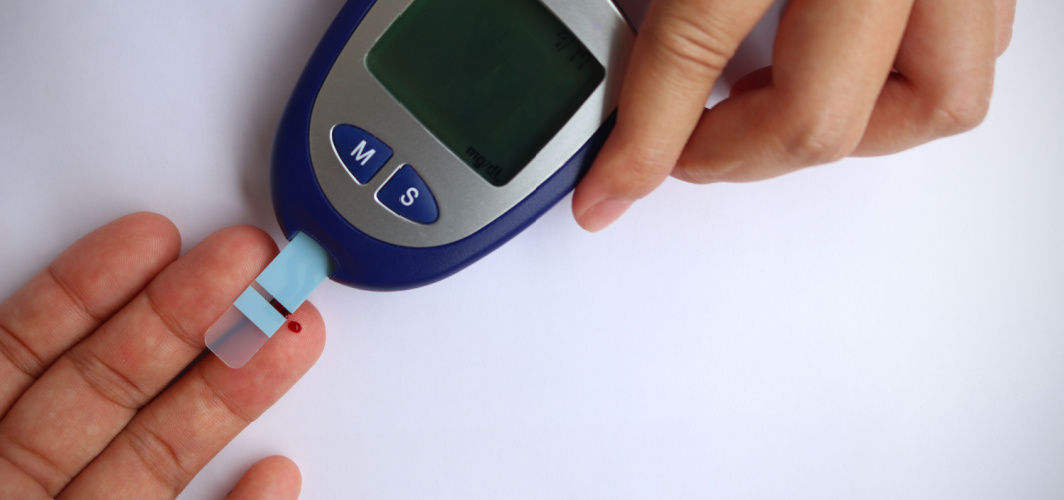Diabetes Management
Which Age Group is the Most Susceptible to Diabetes?
2 min read
By Apollo 24|7, Published on - 29 September 2023, Updated on - 22 February 2024
Share this article
0
0 like

Diabetes, a chronic metabolic disorder characterized by high blood sugar levels, affects people of various age groups. However, there is a definite relationship between a person’s age and diabetes susceptibility. In this article, we will explore which age group is the most susceptible to diabetes and the factors contributing to this vulnerability.
Type 1 Diabetes in Children and Adolescents
Type 1 diabetes is often diagnosed in childhood or adolescence, although it can occur at a later age as well. It results from an autoimmune response that destroys insulin-producing cells in the pancreas. While it is not preventable, advancements in insulin therapy have improved the management of type 1 diabetes.
Type 2 Diabetes in Middle and Older Age
Type 2 diabetes, the most common form, is strongly associated with increasing age. The risk of developing type 2 diabetes tends to rise significantly after the age of 45. Factors such as a sedentary lifestyle, excess weight leading to overweight & obesity, and genetic predisposition contribute to this susceptibility.
Gestational Diabetes During Pregnancy
During pregnancy, older women who are over the age of 25 are more likely to develop gestational diabetes. It is essential to closely monitor and manage this condition to ensure the well-being of both the mother and the baby.
Factors Influencing Age-Related Susceptibility:
- Physical Activity: As people age, they often become less physically active, which can contribute to insulin resistance and weight gain.
- Body Composition: Age-related changes in body composition, such as an increase in visceral fat, can increase insulin resistance.
- Metabolic Changes: Aging is associated with metabolic changes, including reduced insulin sensitivity and a decline in pancreatic function.
- Genetic Factors: Family history and genetic predisposition can increase the risk of diabetes at any age.
Prevention and Management of Diabetes
Regardless of age, early detection and management of diabetes are essential. Regular health check-ups, blood sugar monitoring, a balanced diet, physical activity, and medication, if necessary, are key components of diabetes prevention and management. Older adults may need a different approach to diabetes management due to potential co-existing health conditions.
Conclusion
Diabetes susceptibility varies with age. Type 1 diabetes often manifests in childhood or adolescence, while type 2 diabetes is more common in middle-aged and older individuals. Though gestational diabetes is seen in each maternal age group, there is a steady rise in risk with increasing maternal age. Understanding these age-related risk factors is crucial for early intervention, prevention, and effective diabetes management. Regardless of age, a proactive approach to health and diabetes awareness can help individuals lead healthier lives.
Diabetes Management
Consult Top Diabetologists
View AllLeave Comment
Recommended for you

Diabetes Management
Can High Ozone Levels Cause Significant Lung Damage in Diabetics?
High ozone levels can cause significant lung damage in individuals diagnosed with diabetes. Ozone can exacerbate respiratory symptoms and inflammation, leading to decreased lung function and increased risk of respiratory infections. Diabetics, especially those with pre-existing respiratory conditions, should be cautious and take necessary precautions to minimize exposure to high ozone levels.

Diabetes Management
How Does Diabetes Affect the Immune System?
Diabetes weakens the immune system, raising infection risk and hindering healing. Chronic hyperglycemia impairs immune cells, leading to susceptibility to infections and delayed wound healing. In autoimmune diabetes, risks of other autoimmune conditions increase due to misdirected immune attacks. Chronic inflammation complicates immune responses, affecting overall health. Tailored vaccinations are vital, highlighting the importance of managing blood glucose levels and adopting comprehensive health measures for individuals with diabetes.
.jpg?tr=q-80)
Diabetes Management
How Can Education Help Dispel Diabetes Myths?
Unravel the truth about diabetes through education. Understanding the disease, its types, risk factors, and management can dispel common myths and misconceptions. The right education can empower individuals living with diabetes and foster a more informed society. Programmes like Apollo Super 6 can be impactful for those living with diabetes as it uses an all-encompassing approach to diabetes management.
Subscribe
Sign up for our free Health Library Daily Newsletter
Get doctor-approved health tips, news, and more.
Visual Stories

8 Fruits That are Incredibly Healthy for Diabetes
Tap to continue exploring
Recommended for you

Diabetes Management
Can High Ozone Levels Cause Significant Lung Damage in Diabetics?
High ozone levels can cause significant lung damage in individuals diagnosed with diabetes. Ozone can exacerbate respiratory symptoms and inflammation, leading to decreased lung function and increased risk of respiratory infections. Diabetics, especially those with pre-existing respiratory conditions, should be cautious and take necessary precautions to minimize exposure to high ozone levels.

Diabetes Management
How Does Diabetes Affect the Immune System?
Diabetes weakens the immune system, raising infection risk and hindering healing. Chronic hyperglycemia impairs immune cells, leading to susceptibility to infections and delayed wound healing. In autoimmune diabetes, risks of other autoimmune conditions increase due to misdirected immune attacks. Chronic inflammation complicates immune responses, affecting overall health. Tailored vaccinations are vital, highlighting the importance of managing blood glucose levels and adopting comprehensive health measures for individuals with diabetes.
.jpg?tr=q-80)
Diabetes Management
How Can Education Help Dispel Diabetes Myths?
Unravel the truth about diabetes through education. Understanding the disease, its types, risk factors, and management can dispel common myths and misconceptions. The right education can empower individuals living with diabetes and foster a more informed society. Programmes like Apollo Super 6 can be impactful for those living with diabetes as it uses an all-encompassing approach to diabetes management.



